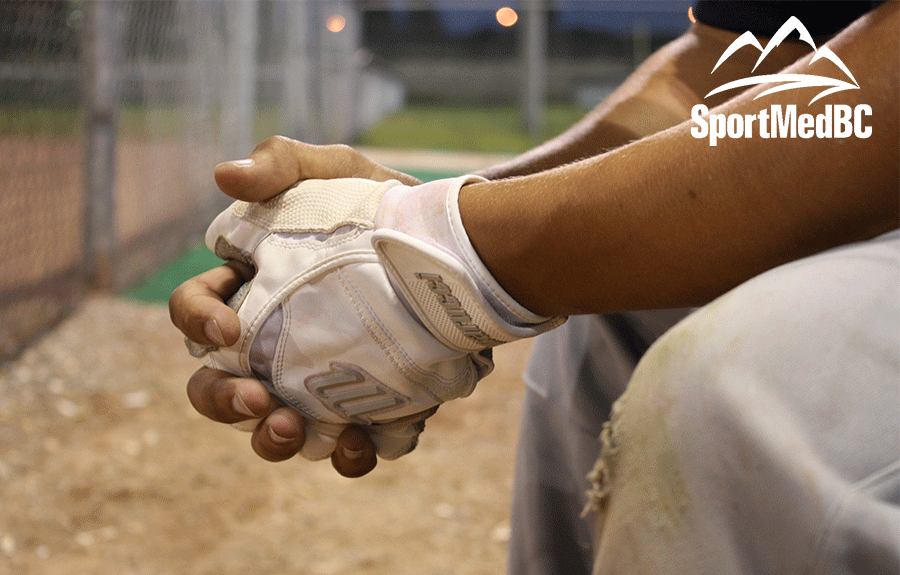Don’t get burned with burnout
Nov 12, 2015

As an athlete, you will always have the drive to do more. With the pressure of competition and wanting to be successful, you will push yourself beyond limits. But you must be careful as you don’t want to become your own worst enemy.
Overtraining is “a process involving an excessive training load, coupled with inadequate recovery.” Overtraining Syndrome is when this process has gone to the extreme. Overtraining, overreaching, overtraining syndrome, staleness, burnout and chronic fatigue syndrome are terms that are often used interchangeably when referring to symptoms of the over-training syndrome within the athletic world.
What is overtraining?
Overtraining can be caused by increasing your training before you are ready, not allowing enough recovery after an increase, and/or too many stresses in other areas of your life. You usually first notice a decline in your performance during both training and competition from fatigue. It is often the build-up of stresses causing a decrease in performance that lasts a few days to a few weeks. Overtraining is this same accumulation of stress, but instead causes a long-term decrease in performance, plus an increase in risk of injury and illness. You naturally experience overreaching in your training program, but you do not want it to progress to overtraining.
When your body has had too much exercise, it is complicated to determine why. This often effects your long-term health and well-being. Symptoms of overtraining include:
- Decline in performance – e.g. You can’t run your usual distance as fast as usual
- Addictive behaviors and/or mood disturbances
- Persistent aches and pains that continue with extended periods of recovery and rest
- Elevation in resting heart rate
- More frequent cold’s and flu’s from a lowered immune system
- In women – disruption of the menstrual cycle
- Overuse injuries, such as stress fractures and tendonitis
- Chronic fatigue
- Insomnia
- Rapid weight loss, loss of appetite
When you have a balance of exercise, rest, and good nutrition, you are able to perform at your best. If you ask your body to do more than it is used to then you create an overload and it requires your body to recover and adapt. As this cycle continues, you become stronger and faster; ultimately a better athlete. When you do not allow your body to rest your body decides to rest for you.
While exercise is a great way to reduce feelings of stress, anxiety and depression (a great way to unwind), make sure it does not become an obsession. Athletes can be addicted to working out and body image. You can compulsively continue to push through pain and injuries to continue to exercise. This can become more important than your family, school or health. If you no longer have fun during exercise and never consider taking a day off – even when sick – then you are showing signs of compulsive exercising. This is a common type of athlete that sets themselves up for overtraining.
People with eating disorders can also use excessive exercise to feel control. It can feel like a good way to purge calories and lose weight. Anorexia Nervosa and Bulimia are two eating disorders that can develop into dangerous health problems. You can harm your bones, muscles, and other organs beyond repair, not to mention permanently damage your metabolism. This will make it more difficult to control your body weight. If this scenario sounds familiar, be sure to get help from a health care professional.
Preventing overtraining
The key to preventing overtraining syndrome is to adapt. When you start a new exercise program your body wants to start slow and progress gradually. This will avoid injury and time for repair and growth. Your coach can help you avoid the bad effects of overtraining by creating a sound training program with the best balance between training stress and recovery.
You can take an active part of this training program by paying attention to your body and mood. Your diary is a great place to write down your resting heart rate, body weight and sleep patterns. Another way to stay fresh is to include active recovery both weekly and yearly. A day of rest is often needed if you feel physically and mentally exhausted. Try a short cross-training session with a less stressful sport that still challenges your legs and main trunk muscles (i.e. cycling, frisbee in the park). It’s something different that refreshes your mind and outlook.
Remember you do not have to keep track of this all on your own. While it’s important for you to manage your athletic and non-athletic stresses, it’s also good to rely on your coach for help. A major challenge for your coach is helping you develop the best balance between your training, competition, recovery, and rest cycles. When you cannot have this balance and there are stresses away from your sport, overreaching and eventually overtraining can occur. Modify your training load to avoid accumulation of stresses and you will not get burned from burnout.
-For information, contact info@sportmedbc.com.
